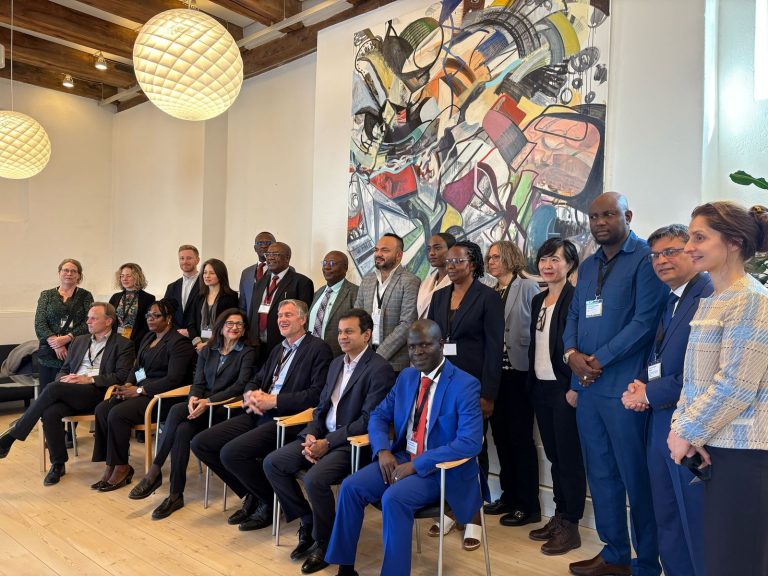Posts Categories
Latest Posts

(Copenhagen, Denmark – April 28, 2025)_Liberia’s Environmental Protection Agency (EPA) Executive Director and CEO, Dr. Emmanuel K. Urey Yarkpawolo, has issued a passionate call for greater investment in climate adaptation initiatives targeting women farmers. He emphasized that rural women are among the most vulnerable groups facing the devastating impacts of climate change on agriculture.
Speaking in Copenhagen, the capital city of Denmark, at a high-level dialogue titled “A Big Bet on Adaptation for Women in Agriculture,” Dr. Yarkpawolo stressed the urgent need to strengthen meteorological infrastructure, expand rural climate information networks, and empower women with climate-smart agricultural practices to build resilience.
The event, hosted at Salon A, Eigtveds Pakhus, was co-organized by the Danish Government and BRAC. It brought together key stakeholders from governments, philanthropic organizations, and academia to strategize on locally-led solutions for climate adaptation, with a special focus on empowering women smallholder farmers in sub-Saharan Africa and South Asia.
“Our discussions today are timely,” Dr. Yarkpawolo stated, referencing Liberia’s ongoing implementation of an ambitious $8.4 billion National Development Plan, aimed at propelling the country to lower-middle-income status by 2030. He emphasized that agriculture, which employs more than 70 percent of Liberia’s population, remains at the heart of this national agenda through a newly developed National Agriculture Plan that integrates climate-sensitive approaches.
Illustrating the human face of the crisis, Dr. Yarkpawolo shared two emotional stories:
He recalled a visit to his home village where women spoke of unpredictable rainfall patterns, leading to widespread hunger and failed rice crops. “We no longer know when to plant our rice because the rainy season has become so irregular,” a local woman told him.
He also cited a case recently shared by Liberia’s Deputy Minister of Agriculture, where a woman-led farming project suffered massive losses due to unexpected droughts, despite government grants supporting their efforts.
“These examples are not isolated,” Dr. Yarkpawolo warned. “They highlight how women farmers, despite their resilience and hard work, are handicapped by a lack of access to vital climate information and adaptation tools.”
To address these challenges, he outlined Liberia’s strategic response through the Enhancing Climate Information System (CIS) Project, which aims to establish a national meteorological center, renovate existing weather stations, and improve access to real-time climate data.
However, Dr. Yarkpawolo pointed out that major gaps still remain. He appealed for stronger international partnerships to expand these initiatives, especially to support women farmers and vulnerable populations through access to climate information by creating early warning systems through radio and mobile phone as well as Artificial Intelligence (AI). He called for scaling up training programs tailored to farmers’ needs, enhancing data literacy, and providing simplified decision-making tools to rural communities.
“The cost-benefit proposition of investing in climate information systems is clear,” he emphasized. “Timely, accessible, and actionable data supports effective adaptation across sectors and maximizes the impact of every dollar spent.”
Dr. Urey Yarkpawolo reaffirmed Liberia’s commitment to integrating climate data into national policies such as the National Adaptation Plan (NAP), and called on global partners to join forces in building a resilient, data-informed future — one where women farmers are equipped not only to survive but to thrive in a changing climate.
The Copenhagen dialogue is part of a broader international effort to drive locally-led climate adaptation initiatives ahead of the upcoming COP30 summit, with the goal of catalyzing transformative action for millions of vulnerable women farmers around the world.
-30-
